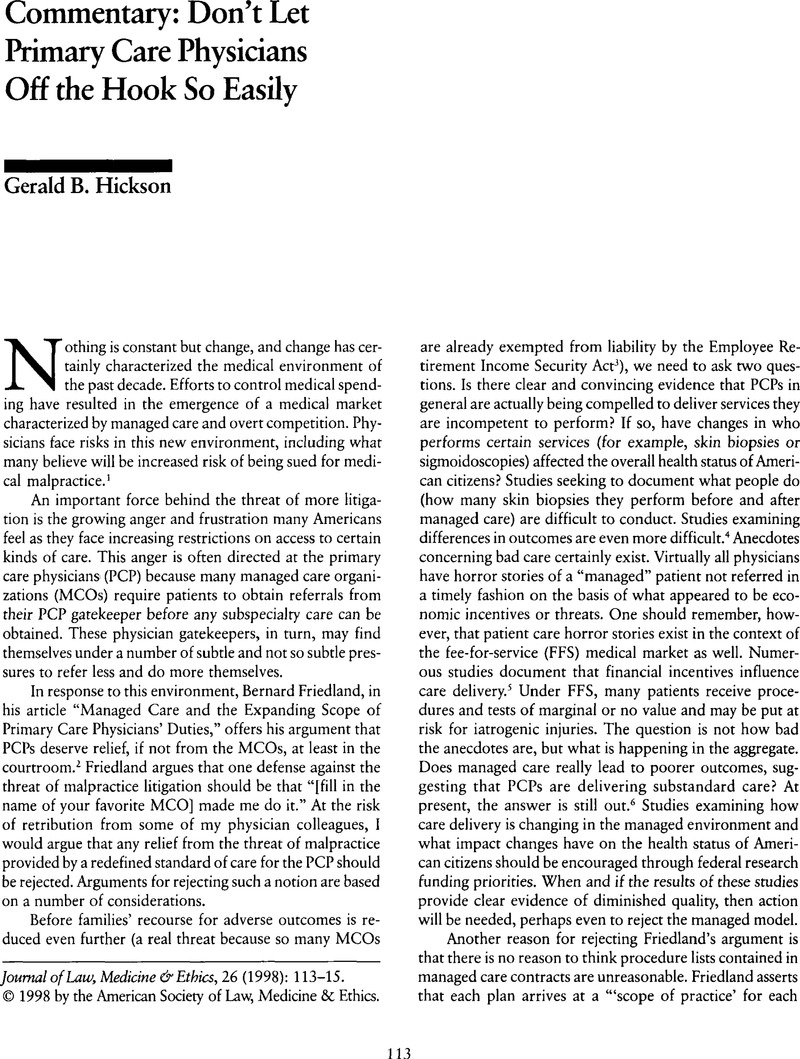See
Fuchs, V.R. Kramer, M.J., Determinants of Expenditures for Physicians' Services in the United States 1948–1968 (Washington, D.C.: National Center for Health Services Research and Development, 1972);
Luft, H.S., Health Maintenance Organizations: Dimensions of Performance (New York: John Wiley, 1981);
Hickson, G.B., “Physician Reimbursement by Salary or Fee-for-Service: Effect on Physician Practice Behavior in a Randomized Prospective Study,” Pediatrics, 80 (1987): 344; and
Wennberg, J. Gittelsohn, A.,
“Variations in Medical Care Among Small Areas,” Scientific American,
246,
no. 4 (
1982):
120–34.
Google Scholar